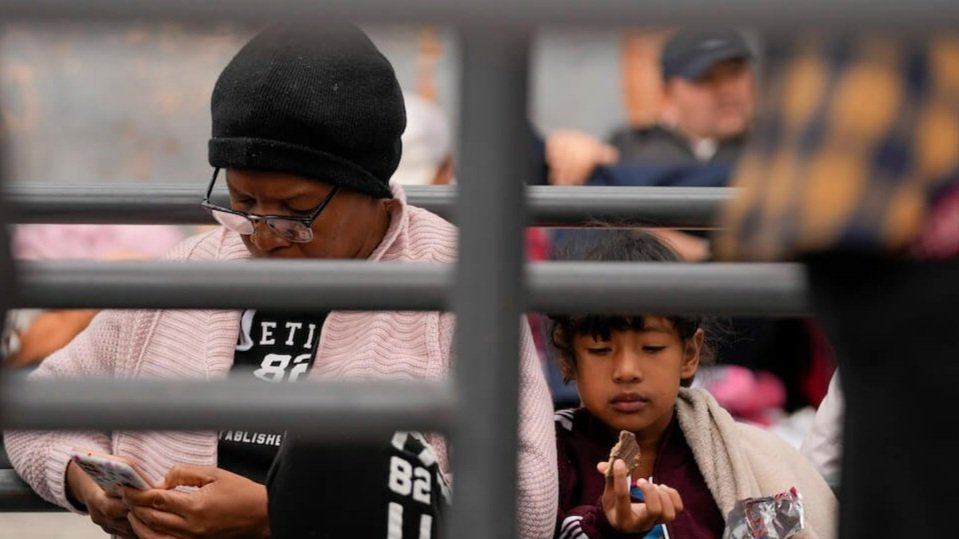How content creators spread misinformation about immigration policies
A woman looks at her phone as she waits with others to apply for asylum near the pedestrian entrance to the San Isidro Port of Entry, linking Tijuana, Mexico with San Diego, Thursday, June 1, 2023, in Tijuana, Mexico. (AP Photo/Gregory Bull)
Poynter
Before making the arduous journey from their home countries toward the U.S. in search of a better life, migrants usually resort to the internet, social media and applications like WhatsApp to inform themselves on how to reach their final destination.
They seek information via social media because they are “focused on the safe way, or the fastest way, or the easiest way to get to the United States,” said Guadalupe Correa-Cabrera, an immigration expert at George Mason University. “They are constantly checking” social media.
However, immigration policies are complicated and have changed a lot in the last few years. As a result, understanding the legal process to reach the United States has become increasingly difficult. This breeds misinformation.
“In normal conditions, people would not believe certain things,” said Fernando García, executive director of Border Network for Human Rights, an organization that supports migrants in El Paso, Texas. “But they are living in shock and fear every day. And they are very susceptible to anything that comes through that would give them a certain degree of hope.”
Not all information that is shared on social media is wrong; still, there are various accounts on social media with hundreds of thousands of followers that share false or misleading information. MORE

